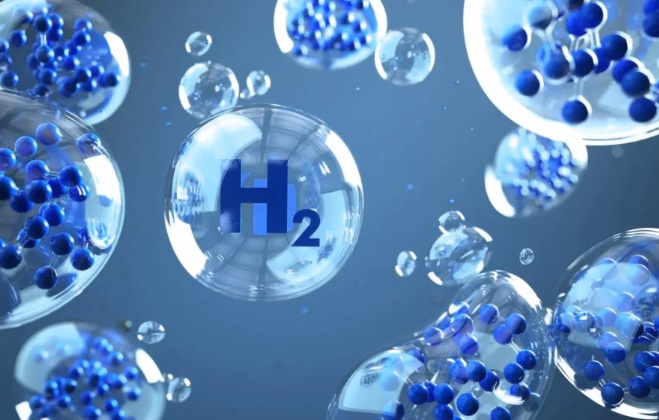Nikhil Prasad Fact checked by:Thailand Medical News Team Jan 21, 2025 2 months, 3 weeks, 2 days, 7 hours, 15 minutes ago
Medical News: Vascular dementia (VaD) is rapidly emerging as a major public health challenge, especially as global populations age. Traditionally considered the second most common form of dementia after Alzheimer’s disease, recent research suggests vascular dementia may actually be the most prevalent type of dementia among the elderly. This condition often follows strokes or chronic conditions like hypertension, diabetes, and cerebrovascular disease, impairing memory, language, and executive function. Treatment options remain limited, creating an urgent need for innovative therapeutic approaches.
 Molecular Hydrogen Therapy Offers Hope for Vascular Dementia Patients
Molecular Hydrogen Therapy Offers Hope for Vascular Dementia Patients
A recent study conducted by researchers from Korea University College of Medicine sheds new light on the potential of molecular hydrogen (H2) as a promising treatment for vascular dementia. This
Medical News report delves into their findings, offering insights into how H2 may alleviate cognitive and immune disturbances associated with the disease.
The Study’s Design and Approach
The research team - led by Dain Lee, Hyunjun Jo, and Jong-Il Choi from Korea University Ansan Hospital and Guro Hospital - used a refined mouse model of vascular dementia. The model simulated chronic cerebral hypoperfusion, a key feature of vascular dementia, by inducing bilateral common carotid artery stenosis (BCCAS). Mice were divided into three groups: a control group, a vascular dementia group without treatment, and a vascular dementia group treated with hydrogen-rich water (HRW). Over 12 weeks, the effects of H2 were meticulously evaluated using behavioral tests, histological analyses, and molecular assays.
Key Findings from Behavioral Assessments
The open field test (OFT) and novel object recognition test (NORT) revealed that untreated VaD mice exhibited significant anxiety and memory impairments. In contrast, H2-treated mice showed substantial improvement, with their behavior resembling that of the healthy control group. Specifically, the H2 group demonstrated reduced anxiety and a stronger preference for exploring novel objects - a marker of enhanced memory function.
These findings suggest that H2 not only mitigates emotional disturbances but also enhances cognitive performance, offering hope for addressing the debilitating symptoms of vascular dementia.
Cellular and Molecular Insights
Histological examinations highlighted the neuroprotective effects of H2. Untreated vascular dementia mice exhibited pyknotic neurons in the hippocampus - a sign of cellular damage - and elevated levels of reactive oxygen species (ROS). H2 treatment reversed these changes, reducing ROS levels and restoring neuronal integrity.
Further analyses revealed that H2 influenced the expression of key genes and proteins associated with neuronal survival, oxidative stress, and inflammation:
-BCL2: This anti-apoptotic protein was downregulated in vascular dementia mice but restor
ed in the H2-treated group, promoting neuronal survival.
-IL-4: H2 treatment significantly increased this anti-inflammatory cytokine, creating a more favorable immune environment.
-GPX5: A critical ROS scavenger, GPX5 expression was restored in H2-treated mice, enhancing antioxidant defenses.
Immune Modulation by Hydrogen
Immune dysregulation plays a pivotal role in vascular dementia, with untreated mice showing an imbalance in T cell populations. Flow cytometry revealed elevated levels of regulatory T cells (Tregs) in VaD mice, which were normalized by H2 treatment. This shift suggests that H2 not only combats inflammation but also restores immunological homeostasis in the brain, further supporting cognitive recovery.
Enhanced Neurogenesis and Synaptic Plasticity
H2 treatment also promoted neurogenesis and synaptic remodeling. The study reported increased expression of genes like IGF2 and GAP43, which are essential for neuronal growth and plasticity. Additionally, the treatment upregulated genes associated with amyloid regulation and neuronal repair, such as APP, PSEN1, and APOE. These molecular changes underscore the potential of H2 to enhance structural and functional recovery in the brain.
Clinical Implications and Future Directions
While the study highlights the therapeutic potential of H2, several challenges remain. Oral administration of HRW, while practical, introduced variability in intake among mice, affecting the consistency of results. Additionally, the surgical model of vascular dementia - though advanced - requires further refinement to minimize variability and better replicate human conditions.
Future research should focus on optimizing H2 delivery methods, such as controlled inhalation or precise dosing, to enhance its clinical applicability. Furthermore, exploring H2’s effects in larger animal models and eventually in human trials will be crucial for translating these findings into viable treatments.
Conclusion
This study marks a significant step forward in understanding the multifaceted benefits of molecular hydrogen for vascular dementia. By reducing oxidative stress, promoting neuronal survival, and restoring immune balance, H2 offers a holistic approach to mitigating the complex pathophysiology of vascular dementia. With further research and refinement, H2 therapy holds the promise of transforming care for millions affected by this debilitating condition.
The study findings were published in the peer-reviewed journal: Antioxidants.
https://www.mdpi.com/2076-3921/14/1/111
For the latest on Dementia, keep on logging to Thailand
Medical News.
Read Also:
https://www.thailandmedical.news/news/common-links-between-long-covid-and-vascular-dementia
https://www.thailandmedical.news/news/pseudoexfoliative-glaucoma-associated-with-increased-risk-of-developing-vascular-dementia
https://www.thailandmedical.news/news/covid-19-news-tulane-university-study-finds-that-sars-cov-2-aggravates-conditions-in-those-with-vascular-dementia
https://www.thailandmedical.news/news/study-uncovers-how-hypertension-causes-vascular-dementia-via-reduced-cerebral-blood-flow
https://www.thailandmedical.news/articles/alzheimer,-dementia-
